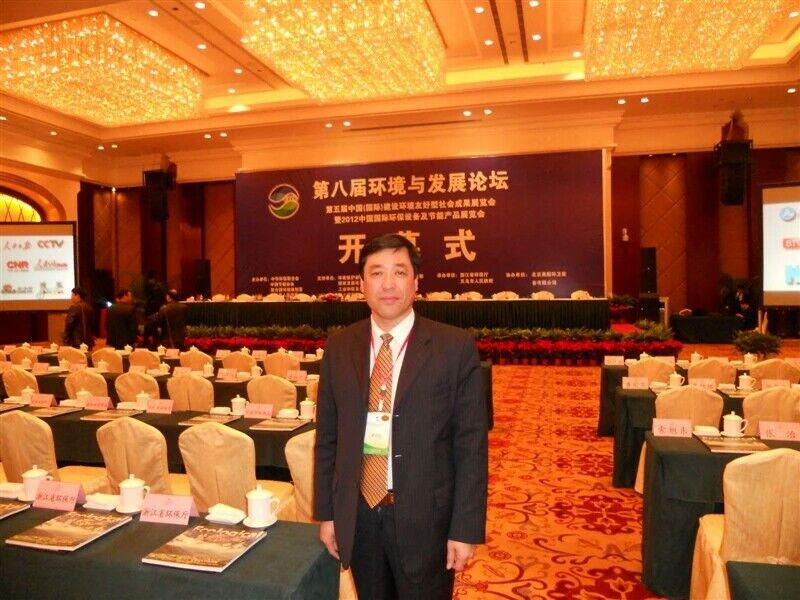|
ПЮ¶ЁФ~¶ю
№ЪФ~ЈЁARTICLEЎіКЗЧоөдРНөДПЮ¶ЁФ~����ЎЈкP(guЁЎn)УЪ№ЪФ~өДУГ·ЁТСФЪЗ°Т»ЦvМбөҪТ»Р©��Ј¬ұҫЦvЧчЯM(jЁ¬n)Т»ІҪҪйҪB����ЎЈ
1 оҗЦёәНМШЦё
№ЪФ~өДұнТв№ҰДЬҝЙТФҡwј{һй¶ю·N��Ј¬јҙоҗЦёЈЁGENERIC REFERENCEЎіәНМШЦёЈЁSPECIFIC REFERENCEЎі�����Ў����ЈЎЎ№ЪФ~КЗМ“Ф~��Ј¬ұҫЙнІ»ДЬҶОӘҡ(dЁІ)К№УГ�����Ј¬ТІӣ]УРФ~Бx���Ј¬ЛьУГФЪГыФ~өДЗ°Гж�����Ј¬ҺНЦъЦёГчГыФ~өДә¬Бx��ЎЈУўХZЦРөД№ЪФ~УРИэ·N��Ј¬Т»·NКЗ¶Ё№ЪФ~ЈЁthe Definite ArticleЈ©(¶Ё№ЪФ~theЕcЦёКҫҙъФ~this���Ј¬thatН¬Фҙ�Ј¬УР"ДЗЈЁЯ@Ј©ӮҖ(gЁЁ)"өДТвЛј�����Ј¬ө«Э^Их����Ј¬ҝЙТФәНТ»ӮҖ(gЁЁ)ГыФ~ЯBУГЈ¬ҒнұнКҫДіӮҖ(gЁЁ)»тДіР©МШ¶ЁөДИЛ»т–|Оч��ЎЈ); БнТ»·NКЗІ»¶Ё№ЪФ~ЈЁthe Indefinite ArticleЈ©(І»¶Ё№ЪФ~a (an)Еc”ө(shЁҙ)Ф~one Н¬Фҙ���Ј¬КЗ"Т»ӮҖ(gЁЁ)"өДТвЛј�ЎЈaУГУЪЭoТфТфЛШЗ°����Ј¬Т»°гЧxЧч[e]��Ј¬¶шan„tУГУЪФӘТфТфЛШЗ°��Ј¬Т»°гЧxЧц[en]���ЎЈ); Бг№ЪФ~ЁZero ArticleЈ©ЎЈ
1ЎіоҗЦё
оҗЦёКЗұнКҫоҗ„e�����Ј¬ТІҫНКЗ·әЦёТ»оҗИЛ»тОп�����ЎЈІ»Х“КЗ¶Ё№ЪФ~ЯҖКЗІ»¶Ё№ЪФ~әНБг№ЪФ~¶јҫЯУРЯ@·N№ҰДЬ��ЎЈұИИз¶Ё№ЪФ~ЕcҶО”ө(shЁҙ)ҝЙ”ө(shЁҙ)ГыФ~ҙоЕд�����Ј¬НщНщҝЙЖроҗЦёөДЧчУГ�����Ј¬іЈУГУЪХэКҪХZуw��ЎЈАэИзЈә
Galileo claimed that he had invented the telescope. GALILEOВ•·QЛы°l(fЁЎ)ГчБЛНыЯh(yuЁЈn)зR��ЎЈ
The horse has been replaced by the railroad, the windship by the steamship. иFВ·ҙъМжБЛсRөДЧчУГ�Ј¬Жыҙ¬ҙъМжБЛ·«ҙ¬ЎЈ
¶Ё№ЪФ~ЕcДіР©РОИЭФ~»т·ЦФ~ЯBУГ�����Ј¬ұнКҫоҗ„e»тійПуёЕДо�����Ј¬ТІКЗТ»·NоҗЦёУГ·Ё��ЎЈАэИзЈә
the rich ё»ИЛ; the living ЙъХЯ���ЎЈұнКҫТ»оҗИЛ���ЎЈ
The sick have been cured, the lost have been found, and the dead have been revived. ІЎұ»ЦОУвЈ¬К§ИҘөДұ»ХТ»ШҒнБЛ���Ј¬ЛАНцұ»НмҫИ»ШҒнБЛ���ЎЈ
The rich get richer, and the poor get children. УРеXөДёьУРеX�Ј¬ёFИЛөГБЛәўЧУ���ЎЈ
The true, the good and the beautiful would not exist without the false, the evil and the ugly. ӣ]УРЖЫт_��ЎўР°җә���ЎўіуВӘҫНӣ]УРХжҢҚ(shЁӘ)ЎўЙЖБјәНГАыҗ����ЎЈ
УГІ»¶Ё№ЪФ~ЕcҶО”ө(shЁҙ)ҝЙ”ө(shЁҙ)ГыФ~ҙоЕдТІҝЙұнКҫоҗ„e��ЎЈАэИзЈә
An ox is a useful animal. №«ЕЈКЗТ»ӮҖ(gЁЁ)УРУГөД„У(dЁ°ng)Оп�����ЎЈ
My brother William is planning to be a lawyer. ОТөДРЦөЬWILLIAMҙтЛгіЙһйТ»ГыВЙҺҹ���ЎЈ
УГБг№ЪФ~ЕcҸН(fЁҙ)”ө(shЁҙ)ҝЙ”ө(shЁҙ)ГыФ~»тІ»ҝЙ”ө(shЁҙ)ГыФ~ҙоЕд�����Ј¬Н¬ҳУҝЙТФұнКҫТ»оҗөДИЛ»тОп�����ЎЈАэИзЈә
Doctors are badly needed at the front. ФЪЗ°ҫҖбt(yЁ©)ЙъКЗ·ЗіЈөШРиТӘ����ЎЈ
Carrots are my favourite vegetable. әъБ_І·КЗОТЧоПІҗЫөДКЯІЛЎЈ
They are teachers, not students.
Cats and tigers belong to the same family of mammals. ШҲәНАП»ўКЗФЪТ»ӮҖ(gЁЁ)јТЧеөД„У(dЁ°ng)Оп��ЎЈ
Electricity is a form of energy. лҠКЗДЬБҝөДТ»·NРО‘B(tЁӨi)���ЎЈ
Unity is strengh. ҲF(tuЁўn)ҪY(jiЁҰ)ҫНКЗБҰБҝ���ЎЈ
2ЎіМШЦё
МШЦёІ»Н¬УЪоҗЦёЈ¬ЛьІ»КЗ·әЦёТ»оҗИЛ»тОп��Ј¬¶шКЗМШЦёТ»оҗИЛ»тОпЦРөДҫЯуwҢҰ(duЁ¬)Пу�����ЎЈЯ@АпУРғЙ·NЗйӣrЈәТ»·NКЗ·ЗіЈГчҙ_өШЦёіцәОИЛ»тәООп���Ј¬Я@ҪРЧц"ҙ_¶ЁМШЦё"ЈЁDEFINETE SPECIFIC REFERENCEЎі���ЎЈ¶Ё№ЪФ~іЈЧчЯ@·NУГ·Ё�����ЎЈАэИзЈә
He bought a house.ЎЎI've been to the house. ЛыЩIБЛҙұ·ҝЧУ����ЎЈОТИҘЯ^ДЗҙұ·ҝЧУ���ЎЈ ЦёЙПОДМбөҪЯ^өДИЛ»тКВ���ЎЈ
We own a dog and a cat. The dog is brown, and the cat is white. ОТӮғУРТ»Ц»ШҲәН№·ЎЈ№·КЗЧШЙ«өД���Ј¬ШҲКЗ°ЧЙ«өД���ЎЈ МШЦёЙПОДМбөҪЯ^өД№·әНШҲ��ЎЈ
The dog and the cat are the same ones we had last year. Я@№·әНШҲКЗОТӮғ?nЁЁi)ҘДкҫНрB(yЁЈng)БЛөД�����ЎЈ МШЦёИҘДкҫНп•рB(yЁЈng)БЛөД№·әНШҲЎЈ
БнТ»·NЗйӣrКЗ"·Зҙ_¶ЁМШЦё"ЈЁINDEFINITE SPECIFIC REFERENCEЎі����Ј¬Я@ТІКЗМШЦёҫЯуwҢҰ(duЁ¬)ПуЈ¬ө«І»әЬГчҙ_�����ЎЈІ»¶Ё№ЪФ~іЈЧчЯ@·NУГ·Ё���ЎЈАэИзЈә
I met an old man in the street. ОТФЪВ·ЙПУцөҪТ»ӮҖ(gЁЁ)АПИЛ���ЎЈ лmОҙөАіцРХГыө«ЛщЦёИФһйДіТ»МШ¶ЁөДАПИЛЎЈ
I have lost a button. ОТҒGБЛТ»Ц»вoҝЫ���ЎЈ ЦёК§ВдТ»оwМШ¶ЁөДвoҝЫ���Ј¬ө«ОҙХfіцәО·NвoҝЫЎЈ
There's a letter for you. УРТ»·вРЕҪoДг����ЎЈ ЦёТ»·вМШ¶ЁөДРЕјюЈ¬ө«І»Гчҙ_КЗХlҢ‘ҒнөД��ЎЈ
A book I want has been acquired by the library. ОТПлТӘөД•шТСҪӣ(jЁ©ng)ҸДҲD•шр^АпөГөҪЎЈ ЦёОТЛщТӘөДДЗұҫМШ¶ЁөД•ш���Ј¬ө«ОҙөАіцКІГҙ•ш��ЎЈ
Бг№ЪФ~ТІДЬУР·Зҙ_¶ЁМШЦёөДУГ·Ё����ЎЈАэИзЈә
The streets are clean and shaded with trees. сRВ·ёЙғфЗТУРҳдөДкҺӣц���ЎЈ
She put carrots in the stew. Лэ°СәъБ_І··ЕИлҹхң«Ап���ЎЈ
3ЎіәуХХ‘Ә(yЁ©ng)МШЦёЎўЗ°ХХ‘Ә(yЁ©ng)МШЦё���ЎўХZҫіМШЦё
ҙ_¶ЁМШЦёУЦҝЙ·ЦһйәуХХ‘Ә(yЁ©ng)МШЦёЈЁANAPHORIC SPECIFIC REFERENCEЎі�ЎўЗ°ХХ‘Ә(yЁ©ng)МШЦёЈЁCATAPHORIC SPECIFIC REFERENCEЎіәНХZҫіМШЦёЈЁSITUATIONAL REFERENCEЎі����ЎЈ
әуХХ‘Ә(yЁ©ng)МШЦёјҙУГ¶Ё№ЪФ~ұнКҫЙППВОДТСҪӣ(jЁ©ng)МбөҪөДИЛ»тОп����ЎЈөЪТ»ҙОМбј°УГІ»¶Ё№ЪФ~����ЎЈөЪ¶юҙОМбј°УГ¶Ё№ЪФ~���ЎЈАэИзЈә
He ordered a book some time ago. The book has now arrived. ЛыТФЗ°ДіӮҖ(gЁЁ)•r(shЁӘ)әт¶ЁЩҸ(gЁ°u)өД•ш�����Ј¬¬F(xiЁӨn)ТСҪӣ(jЁ©ng)өҪЯ_(dЁў)�ЎЈ
З°ХХ‘Ә(yЁ©ng)МШЦёТІКЗТ»·Nҙ_¶ЁМШЦё����Ј¬Ц»КЗХХ‘Ә(yЁ©ng)ҢҰ(duЁ¬)ПуІ»ФЪЙПОДЈ¬¶шФЪПВОД��Ј¬»тХЯёьҙ_ЗРөШХf��Ј¬¶Ё№ЪФ~өДЦё¶ЁЧчУГӣQ¶ЁУЪГыФ~ЦРРДФ~өДәуЦГРЮп—ХZ�ЎЈАэИзЈә
Plese tell us the story of Franklin. ХҲ(qЁ«ng)ёжФVОТFRANKLINөД№ККВЎЈ
Is this the train for Shanghai? ИҘЙПәЈКЗЯ@ҙО»рЬҮҶб����Јҝ
Here is the student I told you about. Я@ҫНКЗОТёжФVДгөДДЗӮҖ(gЁЁ)ҢW(xuЁҰ)ЙъЎЈ
ХZҫіМШЦёІ»КЗҪЁБўФЪЙППВОД»щөA(chЁі)ЙПөДХХ‘Ә(yЁ©ng)кP(guЁЎn)Пө�Ј¬¶шКЗҪЁБўФЪХ„Ф’лp·Ҫ№ІУРөДЦӘЧR(shЁӘ)ЙП�����ЎЈұИИзЦчӢDҢҰ(duЁ¬)ХЙ·тХf����Ј¬I'm just back from the market, ФЪЯ@·NХZҫіЦР�Ј¬В Ф’ИЛТ»¶Ё•ю(huЁ¬)АнҪвthe marketЦёДіӮҖ(gЁЁ)ЖҪ•r(shЁӘ)іЈИҘөДКРҲц(chЁЈng)ЎЈУЦАэИзЈә
Take the medicine.ЎЎ°СЛҺіФБЛ���ЎЈ МШЦёлp·Ҫ¶јГч°ЧөДИЛ»тОп��ЎЈ
What's in the paper(s) today?
Shut the door, please.
How's the cough today?
He turned on the radio.
What's on the radio?
ДЬУГУЪХZҫіМШЦёөД№ЪФ~НЁіЈКЗ¶Ё№ЪФ~�����Ј¬ө«КЗБг№ЪФ~ФЪТ»¶ЁЙППВОДЦРТІҝЙұнКҫҙ_¶ЁМШЦёә¬Бx���Ј¬Я@ТІКЗТ»·NХZҫіМШЦёЎЈАэИзЈә
Mary asked, "Why is father out of work?"
John was elected chairman of the students'union. JOHNұ»ЯxЧчҢW(xuЁҰ)Йъ•ю(huЁ¬)ЦчПҜ�����ЎЈ
2 №ЪФ~өДБ•(xЁӘ)‘TУГ·Ё
ОТҮш(guЁ®)ҢW(xuЁҰ)ЙъҢҰ(duЁ¬)№ЪФ~УГ·ЁЦ®ЛщТФёРөҪА§лyЈ¬І»ғHКЗУЙУЪқhХZӣ]УР№ЪФ~����Ј¬¶шЗТ№ЪФ~УГ·ЁұM№ЬУРТҺ(guЁ©)ВЙҝЙСӯ�����Ј¬АэНв…sМ«¶а����ЎЈУР•r(shЁӘ)Ј¬№ЪФ~өДК№УГғHғHКЗӮҖ(gЁЁ)Б•(xЁӘ)‘TУГ·ЁҶ–о}�����Ј¬әЬлyУГҺЧн—(xiЁӨng)ХZ·Ё—lОДјУТФёЕАЁ�����ЎЈАэИзradioәНtelevisionғЙФ~УГУЪоҗЦё•r(shЁӘ)НЁіЈІ»Һ§¶Ё№ЪФ~Јә
It's easier to write plays for television than for radio. Ң‘лҠТ•„ЎұҫТӘұИҢ‘ҹoҫҖлҠҸVІҘ„ЎұҫИЭТЧөД¶а�ЎЈ
ө«ТӘХflisten to the radio, on the radioЈ»¶шФЪtelevisionЦ®З°…sУЦҝЙТФІ»УГ¶Ё№ЪФ~watch (the) television, on (the) television����ЎЈУЦАэИзЈ¬јІІЎНЁіЈКЗІ»ҝЙ”ө(shЁҙ)ГыФ~Ј¬З°ГжІ»УГ№ЪФ~Јә
She's had appendicitis.
Ithink I've got measles.
ө«УРАэНв�Ј¬ұИИзХf"ёРГ°"ТӘУГ№ЪФ~Ј¬I've got a cold, ҝЙКЗФЪcatch (a) coldЦР���Ј¬ИЛӮғУР•r(shЁӘ)УЦІ»УГ№ЪФ~�Ј»ФЪ"о^Нҙ"З°ТӘУГ№ЪФ~���Ј¬I've got a headache,ө«ФЪСАНҙ����Ўў¶ъНҙЗ°…sУЦІ»УГ№ЪФ~�Ј¬I've got had toothacheЎЈПВГжБРЕeТ»Р©№ЪФ~өДБ•(xЁӘ)‘TҙоЕдкP(guЁЎn)Пө��ЎЈ
1ЎіБ•(xЁӘ)‘TУГ¶Ё№ЪФ~
at the hands of; on the shoulder; by the way; on the spot®”(dЁЎng)Ҳц(chЁЈng); for the time being; on the whole; in the case ofЦБУЪ...; (the) day before yesterday; in the distance; the other day; in the east of; under / in the circumstances; in the end of; to be in the habit of; in the front ofФЪЗ°Іҝ; to bring down the houseІ©өГқMҲц(chЁЈng)әИІК; in the possession ofһй...ЛщУР; to follow the plough„Х(wЁҙ)Юr(nЁ®ng); in the shadeЯdЙ«; to get / gain the upper hand of; on the way; to go by the boardұ»ҒG—ү; on the jobГҰВөЦш; to take the fancy ofТэЖр...өДЧўТв; to tell the truth; on the part of; to turn / tip the scale(s)ЖрӣQ¶ЁРФЧчУГ; on the right / left;
2)Б•(xЁӘ)‘TУГІ»¶Ё№ЪФ~
all of a sudden; to be in a position to; a matter of course; as a rule; as a matter of fact; at a lossІ»ЦӘЛщҙл; at a discount; at a time when; to make the best of a had jobұMБҝңpЙЩ“pК§; to have a chance; to have a good time; to have a hand in…ўЕc; to have a mind to; (to throw...) for a lossК№...Хру@; in (after) a fashionВФВФөШ; in a walkЭp¶шТЧЕeөШ; on a large scale; with a firm hand; with a view to; to be in a hurry; to get / fly into a temper°l(fЁЎ)Еӯ; to have a say; to have a try; to keep an eye on; to lend a handҺНЦъ; to put a premium onЦШТ•; to take a fancy toПІҗЫ; to take a walk; to take an interest in;
3) Б•(xЁӘ)‘TУГБг№ЪФ~
at anchor; at bottom; at dinnerФЪіФпҲ; at handҪьФЪКЦЯ…; at home; at last; at play; at present; at rest; at short noticeТ»ҪУөҪНЁЦӘ; at stake; at tableФЪЯM(jЁ¬n)ІН; at war; beyond hope of; big talkҙөЕЈ; by ruleД«КШіЙТҺ(guЁ©)өШ; by way ofҪӣ(jЁ©ng)УЙ; day and night; in honour of; in order; in pleace; in placeЯm®”(dЁЎng)?shЁҙ)? in questionХэұ»Х„?wЁҙ)“ө? in sightФЪНы; in trouble; in view; on board; on deck; on handКЦо^¬F(xiЁӨn)УР; on shore; on top ofФЪ...Ц®ЙП; under cover; within (easy) reach (of); without result; to be hard of heart; to be large of limb; from beginning to end; in advance; in danger; in debt; in case (of)Из№ы; in distrss; in (the) face ofГжҢҰ(duЁ¬); in fashion•r(shЁӘ)Еd/БчРР; in fact; in fear; in front ofФЪ...Ц®З°; to be number of foot; to be pale of face; in haste; in possession of; to burn daylightНҪ„ЪҹoТж; to keep / bear in mind; to set foot onМӨЙП; to take care of; to take / have command; to take part in ; to take place;
ёҪјУЈә
1 І»¶Ё№ЪФ~өДУГ·Ё
ЎЎЎЎ№ЪФ~КЗМ“Ф~�Ј¬ұҫЙнІ»ДЬҶОӘҡ(dЁІ)К№УГЈ¬ТІӣ]УРФ~Бx�����Ј¬ЛьУГФЪГыФ~өДЗ°Гж���Ј¬ҺНЦъЦёГчГыФ~өДә¬Бx�����ЎЈУўХZЦРөД№ЪФ~УРИэ·N����Ј¬Т»·NКЗ¶Ё№ЪФ~ЈЁthe Definite ArticleЈ©�����Ј¬БнТ»·NКЗІ»¶Ё№ЪФ~ЈЁthe Indefinite ArticleЈ©���Ј¬ЯҖУРТ»·NКЗБг№ЪФ~ЈЁZero ArticleЈ©��ЎЈ
ЎЎЎЎІ»¶Ё№ЪФ~a (an)Еc”ө(shЁҙ)Ф~one Н¬Фҙ��Ј¬КЗ"Т»ӮҖ(gЁЁ)"өДТвЛј����ЎЈaУГУЪЭoТфТфЛШЗ°���Ј¬Т»°гЧxЧч[e]�Ј¬¶шan„tУГУЪФӘТфТфЛШЗ°�Ј¬Т»°гЧxЧц[en]ЎЈ
ЎЎ1) ұнКҫ"Т»ӮҖ(gЁЁ)"Ј¬Твһйone����Ј»ЦёДіИЛ»тДіОпЈ¬Твһйa certain�����ЎЈ
ЎЎЎЎ A Mr. Ling is waiting for you.
There's a pen on the desk. ЧАЧУЙПУРТ»ЦҰд“№P��ЎЈ
ЎЎ2) ө«КЗ����Ј¬іэұнКҫ"Т»"Я@Т»”ө(shЁҙ)БҝНвЈ¬әЬ¶аЗйӣrПВ a ЕcҝЙ”ө(shЁҙ)ГыФ~Т»ЖрұнКҫТ»оҗКВОп»тХЯ·әЦёёЕДо���ЎЈҙъұнТ»оҗИЛ»тОп�ЎЈ
I need a pencil now. ОТ¬F(xiЁӨn)ФЪРиТӘЈЁТ»Ј©ЦҰгU№P�����ЎЈЈЁІ»ҙ_ЦёДДЦҰгU№PЈ©
We can't say a boy is cleverer than a girl. ОТӮғІ»ДЬХfДРәўұИЕ®әўВ”Гч����ЎЈЈЁұнКҫоҗ„eЈ©ҙъұнТ»оҗИЛ»тОп�ЎЈ
ЎЎЎЎ A knife is a tool for cutting with.
ЎЎЎЎ Mr. Smith is an engineer.
І»¶Ё№ЪФ~ФЪұнКҫ"Т»"өДёЕДо•r(shЁӘ)�����Ј¬КЗ·ЗҸҠ(qiЁўng)Х{(diЁӨo)РФөД�ЎЈИз№ыҸҠ(qiЁўng)Х{(diЁӨo)"Т»"Я@Т»”ө(shЁҙ)БҝЈ¬іЈіЈУГone
National Day is a two-day holiday. Үш(guЁ®)‘c№қ(jiЁҰ)КЗЈЁТ»Ј©ӮҖ(gЁЁ)ғЙМмөДјЩИХ���ЎЈ
We have only one day left to finish the task. ОТӮғЦ»КЈПВТ»Мм•r(shЁӘ)йgҒнНкіЙЯ@ӮҖ(gЁЁ)ИО„Х(wЁҙ)�����ЎЈ
ЎЎ3) Ф~ҪM»тіЙХZЎЈ
ЎЎЎЎ a little / a few / a lot / a type of / a pile / a great many / many a / as a rule / in a hurry / in a minute / in a word / in a short while / after a while / have a cold / have a try / keep an eye on / all of a sudden
4) І»¶Ё№ЪФ~УГФЪұнКҫ”ө(shЁҙ)Бҝ�Ўў•r(shЁӘ)йgөИГыФ~З°Ј¬ұнКҫ"ГҝТ»ЈЁҶОО»Ј©ЎӯөДғr(jiЁӨ)ёс�����ЎўЛЩ¶И�ЎўнҳРтөИ"
The apples are two yuan a kilogram. Я@Р©МO№ыГҝ№«ҪпғЙФӘеXЎЈ
Tom drives a car at 60 miles an hour. ң«Д·ТФГҝРЎ•r(shЁӘ)60УўАпөДЛЩ¶Ий_ЬҮ����ЎЈ
I go back home once a month. ОТГҝФВ»ШјТТ»ҙО�ЎЈ
5) І»¶Ё№ЪФ~УГУЪҶО”ө(shЁҙ)ҝЙ”ө(shЁҙ)ГыФ~З°�Ј¬ұнКҫІ»ҙ_¶ЁРФЈ¬·әЦёИЛөДВҡҳI(yЁЁ)�����ЎўҮш(guЁ®)ј®�ЎўЧЪҪМөИ:
He is a Christian. ЛыКЗ»щ¶ҪНҪЎЈ
My friend, Asaku, is a Japanese. ОТөДЕуУСAsakuКЗИХұҫИЛ���ЎЈ
He was a teacher in the past. But he is a businessman now. Я^ИҘЛыКЗҪМҺҹ�����Ј¬ө«¬F(xiЁӨn)ФЪЛыКЗЙъТвИЛ�ЎЈ
He was made a dean. Лыұ»ИОГьһйЦчИО����ЎЈ
6) І»¶Ё№ЪФ~УГФЪИЛГы»тұнКҫИЛөДГыФ~З°Ј¬ұнКҫІ»ҙ_¶ЁРФ�����Ј¬јҙХfФ’ИЛІ»Зеію»тӣ]УРЦёГчЛщМбөҪөДИЛөҪөЧКЗХl
A Tom Smith is waiting for you downstairs. Т»ӮҖ(gЁЁ)ҪРң«Д·ЎӨК·ГЬЛ№өДИЛХэФЪҳЗПВөИДг��ЎЈ
A Smith called you just now. „ӮІЕТ»ӮҖ(gЁЁ)ҪРК·ГЬЛ№өДИЛҪoДгХТлҠФ’ЎЈ
A comrade is waiting for you outside. Т»ӮҖ(gЁЁ)Н¬ЦҫФЪНвГжөИДг�����ЎЈ
7) І»¶Ё№ЪФ~УГУЪbe of a (an)+nounҪY(jiЁҰ)ҳӢ(gЁ°u)ЦР��Ј¬ұнКҫ"ПаН¬ЎӯөД"
Tom and his sister are of a height. ң«Д·әНЛыөДГГГГЙнёЯПаН¬�ЎЈ
These sweaters are of a size. Я@ЩëТВҙуРЎПаН¬ЎЈ
І»¶Ё№ЪФ~УГУЪ№М¶ЁҪY(jiЁҰ)ҳӢ(gЁ°u)quite/half/rather/many/what/such a (an)+noun»тso/too/how+adjective+a(an)+nounЦР��Ј¬ұнКҫіМ¶И����Ўў”ө(shЁҙ)Бҝ»тёРҮ@өИ
It takes half an hour to get there. өҪДЗАпРиТӘ°лРЎ•r(shЁӘ)���ЎЈ
He's quite a famous artist. ЛыКЗӮҖ(gЁЁ)әЬУРГыөДЛҮРg(shЁҙ)јТ����ЎЈ
Many a man would welcome such an opportunity. ФS¶аИЛ•ю(huЁ¬)әЬёЯЕdУРЯ@ҳУТ»ӮҖ(gЁЁ)ҷC(jЁ©)•ю(huЁ¬)�ЎЈ
What a fool he is! Лы¶аЙө°Ў�����ЈЎ
It's too difficult a problem for him. ҢҰ(duЁ¬)ЛыҒнХfЈ¬Я@КЗТ»ӮҖ(gЁЁ)М«лyөДҶ–о}����ЎЈ
9) І»¶Ё№ЪФ~УГУЪДіР©Б•(xЁӘ)‘TУГХZ»тЦVХZЦР
in a word ҝӮ¶шСФЦ® take a walk ЙўІҪ at a time Т»ҙО
ЧўЈә®”(dЁЎng)Т»ЖӘОДХВЦРөЪТ»ҙОМбөҪДіТ»КВОп•r(shЁӘ)Ј¬ФЪГыФ~З°ГжТӘјУІ»¶Ё№ЪФ~����Ј¬ТФәуФЩҙОМбөҪН¬Т»КВОп•r(shЁӘ)УГ¶Ё№ЪФ~ЎЈ
ЎӯHe saw a man standing there. The man was the person that he was looking for.Ўӯ
ЎӯЛыҝҙөҪТ»ӮҖ(gЁЁ)ИЛХҫФЪДЗАп�����ЎЈДЗӮҖ(gЁЁ)ИЛҫНКЗЛыХэХТөДИЛ�����ЎЈ
2 ¶Ё№ЪФ~өДУГ·Ё
ЎЎЎЎ¶Ё№ЪФ~theЕcЦёКҫҙъФ~this���Ј¬thatН¬Фҙ�Ј¬УР"ДЗЈЁЯ@Ј©ӮҖ(gЁЁ)"өДТвЛј�����Ј¬ө«Э^ИхЈ¬ҝЙТФәНТ»ӮҖ(gЁЁ)ГыФ~ЯBУГ�����Ј¬ҒнұнКҫДіӮҖ(gЁЁ)»тДіР©МШ¶ЁөДИЛ»т–|Оч���ЎЈ
ЎЎ1Ј©МШЦёлp·Ҫ¶јГч°ЧөДИЛ»тОпЈә
ЎЎЎЎ Take the medicine.ЎЎ°СЛҺіФБЛ���ЎЈ
ЎЎ2Ј©ЙПОДМбөҪЯ^өДИЛ»тКВЈә
ЎЎЎЎ He bought a house.ЎЎI've been to the house.
ЎЎЎЎ ЛыЩIБЛҙұ·ҝЧУЎЈОТИҘЯ^ДЗҙұ·ҝЧУ���ЎЈ
ЎЎ3Ј©ЦёКАЙПӘҡ(dЁІ)Т»Оп¶юөДКВОпЈә
ЎЎ the moon�����Ј¬ the earth, the sun М«к–, the earth өШЗт, the world КАҪз, the nature ЧФИ»Ҫз, the sky МмҝХ, the universe УоЦж
ЎЎ4Ј©ҶО”ө(shЁҙ)ГыФ~ЯBУГұнКҫТ»оҗКВОп�Ј¬ИзЈәthe dollar ГАФӘ; the fox әьШӮ�Ј»»тЕcРОИЭФ~»т·ЦФ~ЯBУГЈ¬ұнКҫТ»оҗИЛЈәthe rich ё»ИЛ; the living ЙъХЯ����ЎЈ
The lion is a wild animal. Ә{ЧУКЗТ°Йъ„У(dЁ°ng)Оп����ЎЈ
The compass was invented in China. ЦёДПбҳКЗЦРҮш(guЁ®)°l(fЁЎ)ГчөД��ЎЈ
The wolf hunts by night. АЗТ№йgіцҒнТ’Кі����ЎЈ
ЎЎ5Ј©УГФЪРт”ө(shЁҙ)Ф~әНРОИЭФ~әНёұФ~өДЧоёЯјү(jЁӘ)����Ј¬ј°РОИЭФ~onlyЈ¬ very����Ј¬ sameөИЗ°ГжЈә
He runs the fastest. ЛыЕЬөГЧоҝмЎЈ
Is this the best choice he can make? Я@КЗЛыДЬЧціцөДЧоәГөДЯx“сҶб��Јҝ
ЎЎЎЎ Where do you live?ЎЎI live on the second floor.ЎЎ ДгЧЎФЪДД�����ЈҝОТЧЎФЪ¶юҢУ����ЎЈ
ЎЎЎЎ That's the very thing I've been looking for.ЎЎ ДЗХэКЗОТТӘХТөД–|ОчЎЈ
6) УГФЪРОИЭФ~З°��Ј¬ұнКҫТ»оҗИЛ»тКВОп
the poor ёFИЛ the blind ГӨИЛ the aged АПИЛ the impossible І»ҝЙДЬөДКВЗй
ЎЎ7Ј©ЕcҸН(fЁҙ)”ө(shЁҙ)ГыФ~ЯBУГЈ¬ЦёХыӮҖ(gЁЁ)ИәуwЈә
ЎЎ They are the teachers of this school.ЦёИ«уwҪМҺҹ)
ЎЎ They are teachers of this school.ЎЎ (ЦёІҝ·ЦҪМҺҹ)
ЎЎ8Ј©ұнКҫЛщУР�����Ј¬Па®”(dЁЎng)УЪОпЦчҙъФ~����Ј¬УГФЪұнКҫЙнуwІҝО»өДГыФ~З°Јә
ЎЎShe caught me by the arm..ЎЎЛэЧҘЧЎБЛОТөДКЦұЫЎЈ
ЎЎ9Ј©УГФЪДіР©УЙЖХНЁГыФ~ҳӢ(gЁ°u)іЙөДҮш(guЁ®)јТГы·Q��ЎўҷC(jЁ©)кP(guЁЎn)ҲF(tuЁўn)уw�ЎўлAјү(jЁӘ)ЎўөИҢЈУРГыФ~З°Јә
ЎЎ the People's Republic of ChinaЎЎ ЦРИAИЛГс№ІәНҮш(guЁ®)
ЎЎ the United StatesЎЎ ГАҮш(guЁ®)
ЎЎ10Ј©УГФЪұнКҫҳ·ЖчөДГыФ~Ц®З°ЈәЎЎ
She plays the piano.ЎЎЛэ•ю(huЁ¬)Ҹ—д“ЗЩ��ЎЈ
ЎЎ11) УГФЪРХКПөДҸН(fЁҙ)”ө(shЁҙ)ГыФ~Ц®З°����Ј¬ұнКҫТ»јТИЛЈә
ЎЎthe GreensЎЎ ёсБЦТ»јТИЛ (»тёсБЦ·тӢD)
12) ¶Ё№ЪФ~УГФЪГыФ~З°Ј¬ұнКҫМШЦё��Ј¬јҙДіӮҖ(gЁЁ)МШ¶ЁөДИЛ�ЎўКВОпөИЎЈМШ„eКЗ®”(dЁЎng)ДіГыФ~әуГжУР¶ЁХZПЮ¶ЁЯ@Т»ГыФ~•r(shЁӘ)�����Ј¬ГыФ~З°ГжТ»°г¶јТӘУГ¶Ё№ЪФ~the
We have found the book that we lost yesterday. ОТӮғТСҪӣ(jЁ©ng)ХТөҪБЛЧтМмҒGөДДЗұҫ•ш��ЎЈ
Do you know the man standing by the window? ДгХJ(rЁЁn)ЧR(shЁӘ)ДЗӮҖ(gЁЁ)ХҫФЪҙ°‘фЕФЯ…өДИЛҶб���Јҝ
How do you like the rooms here? ДгУXөГЯ@АпөД·ҝйgФхГҙҳУ���Јҝ
ЎЎ13) УГФЪ‘TУГХZЦРЈә
ЎЎЎЎЎЎin the day, in the morning (afternoonЈ¬evening),ЎЎthe day after tomorrowЎЎ
the day before yesterday,ЎЎthe next morning,ЎЎ
in the sky (water����Ј¬fieldЈ¬country)ЎЎ
in the dark,ЎЎin the rain,ЎЎin the distance,ЎЎ
in the middle (of),ЎЎin the end,
on the whole,ЎЎby the way,ЎЎgo to the theatre
3 Бг№ЪФ~өДУГ·Ё
ЎЎ1) Үш(guЁ®)Гы���Ј¬ИЛГыЗ°НЁіЈІ»УГ¶Ё№ЪФ~ЈәEngland����Ј¬Mary����Ј»
ЎЎ2Ј©·әЦёөДҸН(fЁҙ)”ө(shЁҙ)ГыФ~Ј¬ұнКҫТ»оҗИЛ»тКВОп•r(shЁӘ)���Ј¬ҝЙІ»УГ¶Ё№ЪФ~����Ј»
ЎЎЎЎThey are teachers. ЛыӮғКЗҪМҺҹЎЈ
ЎЎ3Ј©ійПуГыФ~ұнКҫТ»°гёЕДо•r(shЁӘ)����Ј¬НЁіЈІ»јУ№ЪФ~Ј»
ЎЎЎЎFailure is the mother of success.ЎЎК§”ЎДЛіЙ№ҰЦ®Дё�����ЎЈ
ЎЎ4Ј©ОпЩ|(zhЁ¬)ГыФ~ұнКҫТ»°гёЕДо•r(shЁӘ)�Ј¬НЁіЈІ»јУ№ЪФ~Ј¬®”(dЁЎng)ұнКҫМШ¶ЁөДТвЛј•r(shЁӘ)���Ј¬РиТӘјУ¶Ё№ЪФ~�Ј»
ЎЎЎЎMan cannot live without water.ЎЎИЛлxй_Л®ҫНҹo·ЁЙъҙж�����ЎЈ
ЎЎ5Ј©ФЪјҫ№қ(jiЁҰ)���ЎўФВ·Э��Ўў№қ(jiЁҰ)ИХ�Ўў јЩИХЎўИХЖЪ�����ЎўРЗЖЪөИұнКҫ•r(shЁӘ)йgөДГыФ~Ц®З°�Ј¬І»јУ№ЪФ~��Ј»
ЎЎ We go to school from Monday to Friday.ЎЎ ОТӮғҸДРЗЖЪТ»өҪРЗЖЪОе¶јЙПХn����ЎЈ
ЎЎ6Ј©ФЪ·Qәф»тұнКҫ№Щг•Ј¬ВҡО»өДГыФ~З°І»јУ№ЪФ~��Ј»
ЎЎ The guards took the American to General Lee.
ЎЎ КҝұшӮғ°СЯ@ӮҖ(gЁЁ)ГАҮш(guЁ®)ИЛЛНөҪАоҢўЬҠДЗАп�����ЎЈ
ЎЎ7Ј©ФЪИэІН��ЎўЗтоҗЯ\(yЁҙn)„У(dЁ°ng)әНҠКҳ·Я\(yЁҙn)„У(dЁ°ng)өДГы·QЗ°���Ј¬І»јУ№ЪФ~ ИзЈәhave breakfast��Ј¬play chess
ЎЎ8Ј©®”(dЁЎng)ғЙӮҖ(gЁЁ)»тғЙӮҖ(gЁЁ)ТФЙПГыФ~ІўУГ•r(shЁӘ)��Ј¬іЈКЎИҘ№ЪФ~�����Ј»
ЎЎЎЎI can't write without pen or pencil.ЎЎЎЎӣ]УРд“№PәНгU№P�Ј¬ОТҫНҢ‘І»БЛЧЦЎЈ
ЎЎ9Ј©®”(dЁЎng)by Еc»рЬҮөИҪ»НЁ№ӨҫЯЯBУГ��Ј¬ұнКҫТ»·N·ҪКҪ•r(shЁӘ)���Ј¬ЦРйgҹo№ЪФ~����Ј»by bus���Ј¬by train�Ј»
ЎЎ10Ј©УРР©ӮҖ(gЁЁ)уwГыФ~І»УГ№ЪФ~�Ј»ИзЈә
ЎЎ schoolЈ¬college���Ј¬prison�����Ј¬market�����Ј¬hospital��Ј¬bed���Ј¬tableЈ¬class��Ј¬town����Ј¬churchЈ¬court өИӮҖ(gЁЁ)уwГыФ~�Ј¬ЦұҪУЦГУЪҪйФ~әуЈ¬ұнКҫФ“ГыФ~өДЙоҢУә¬Бx��Ј»
ЎЎЎЎЎЎ go to hospitalЎЎЎЎИҘбt(yЁ©)ФәҝҙІЎ
ЎЎЎЎЎЎ go to the hospitalЎЎ ИҘбt(yЁ©)Фә (ІўІ»КЗИҘҝҙІЎ�����Ј¬¶шКЗУРЖдЛыДҝөД)
ЎЎ11)І»УГ№ЪФ~өДРт”ө(shЁҙ)Ф~�����Ј»
ЎЎa. Рт”ө(shЁҙ)Ф~З°УРОпЦчҙъФ~
ЎЎb. Рт”ө(shЁҙ)Ф~ЧчёұФ~ЎЎ He came first in the race.
ЎЎc. ФЪ№М¶ЁФ~ҪMЦРЎЎ at (the) first,first of all,ЎЎЎЎfrom first to last
4 №ЪФ~ЕcРОИЭФ~+ГыФ~ҪY(jiЁҰ)ҳӢ(gЁ°u)
ЎЎ1) ғЙӮҖ(gЁЁ)РОИЭФ~¶јУР№ЪФ~Ј¬ұнКҫғЙӮҖ(gЁЁ)І»Н¬–|Оч�ЎЈ
ЎЎЎЎ He raises a black and a white cat.ЎЎ ЛырB(yЁЈng)БЛТ»Ц»әЪШҲәНТ»Ц»°ЧШҲЎЈ
ЎЎ The black and the white cats are hers.ЎЎ Я@Ц»әЪШҲәН°ЧШҲ¶јКЗЛыөД��ЎЈ
ЎЎ2) ИзәуТ»ӮҖ(gЁЁ)РОИЭФ~ҹo№ЪФ~�Ј¬„tЦёТ»ОпЎЈ
ЎЎЎЎ He raises a black and white cat.ЎЎ ЛырB(yЁЈng)БЛТ»Ц»»ЁШҲ�ЎЈ
5 №ЪФ~О»ЦГ
ЎЎ1) І»¶Ё№ЪФ~О»ЦГ
ЎЎІ»¶Ё№ЪФ~іЈО»УЪГыФ~»тГыФ~РЮп—ХZЗ°ЎЈЧўТвЈәЎЎ
ЎЎa. О»УЪПВБРРОИЭФ~Ц®әуЈә such��Ј¬what���Ј¬many�Ј¬half���Ј¬
ЎЎЎЎ I have never seen such an animal.
ЎЎЎЎ Many a man is fit for the job.
ЎЎb. ®”(dЁЎng)ГыФ~З°өДРОИЭФ~ұ»ёұФ~as, so, too, how, however, enoughРЮп—•r(shЁӘ)���Ј¬І»¶Ё№ЪФ~‘Ә(yЁ©ng)·ЕФЪРОИЭФ~Ц®әуЈә
ЎЎЎЎ It is as pleasant a day as I have ever spent.
ЎЎЎЎ So short a time.
ЎЎЎЎ Too long a distance.
ЎЎc. quiteЈ¬ratherЕcҶО”ө(shЁҙ)ГыФ~ЯBУГ�����Ј¬№ЪФ~·ЕФЪЖдәуЎЈ
ө«®”(dЁЎng)rather����Ј¬quite З°ИФУРРОИЭФ~Ј¬І»¶Ё№ЪФ~·ЕЖдЗ°әуҫщҝЙ���ЎЈИзЈәquite a lot
ЎЎd. ФЪas�����Ј¬though ТэҢ§(dЁЈo)өДЧҢІҪ оХZҸДҫдЦРЈ¬®”(dЁЎng)ҳЛ(biЁЎo)ХZһйРОИЭФ~РЮп—өДГыФ~•r(shЁӘ)�����Ј¬І»¶Ё№ЪФ~·ЕРОИЭФ~әуЈә
ЎЎЎЎЎЎ Brave a man though he is��Ј¬he trembles at the sight of snakes. ЛыұM№ЬУВёТ���Ј¬ҝЙТҠөҪЙЯЯҖКЗ°l(fЁЎ)¶¶�����ЎЈ
ЎЎЎЎ ®”(dЁЎng)ГыФ~ұ»ұИЭ^јү(jЁӘ)РОИЭФ~РЮп—•r(shЁӘ)�Ј¬І»¶Ё№ЪФ~НЁіЈЦГУЪұИЭ^јү(jЁӘ)РОИЭФ~Ц®әуЎЈ
e) ¶Ё№ЪФ~О»ЦГ
ЎЎ ¶Ё№ЪФ~НЁіЈО»УЪГыФ~»тГыФ~РЮп—ХZЗ°���Ј¬ө«·ЕФЪall���Ј¬ bothЈ¬double�Ј¬halfЈ¬twice���Ј¬three timesөИФ~Ц®әу����Ј¬ГыФ~Ц®З°��ЎЈ
ЎЎ All the students in the class went out.ЎЎ°аАпөДЛщУРҢW(xuЁҰ)Йъ¶јіцИҘБЛ���ЎЈ
6 ҢЈУРГыФ~З°№ЪФ~өДУГ·Ё
1) УГІ»¶Ё№ЪФ~өДЗйӣr
A.ұнКҫДіҮш(guЁ®)ИЛ�Ј¬ДіӮҖ(gЁЁ)ХfФ’ИЛө«І»ЗеіюКЗХlөДИЛ��ЎЈЈЁЦ»ЦӘЖдГыЈ©
She is an American. ЛэКЗГАҮш(guЁ®)ИЛ�ЎЈ
B.ұнКҫДіТ»јТНҘіЙҶT»тДіТ»ГыИЛөДЧчЖ·ЎЈ
A Forsyte was kidnapped yesterday. ЧтМмёЈКПјТЧеөДТ»ӮҖ(gЁЁ)іЙҶTұ»ҪүјЬБЛЎЈ
There's a Rembrandt in her collection. ЛэөДКХІШЖ·ЦРУРТ»·щӮҗІӘАКөД®Ӣ��ЎЈ
I have read a new Wells recently. ЧоҪьОТЧxБЛНю –Л№өДТ»ІҝРВЧч����ЎЈ
2) УГ¶Ё№ЪФ~өДЗйӣr
A.ДіР©өШАнГыФ~Ј¬ИзҪӯәУәЈСу���ЎўәЈҚ{әЈһі��ЎўЙҪГ}ИәҚu�ЎўЙіД®өИЦ®З°ТӘУГ¶Ё№ЪФ~���ЎЈ
the Yangtze йL(zhЁЈng)Ҫӯ the Thames М©ОоКҝәУ the South Sea ДПәЈ the Pacific М«ЖҪСу the English Channel УўјӘАыәЈҚ{ the Persian Gulf ІЁЛ№һі the Himalayas ПІ¬”АӯСЕЙҪГ} the Philippines ·ЖВЙЩeИәҚu the Sahara Desert Иц№юАӯЙіД®
B.УЙЖХНЁГыФ~әНЖдЛьТ»Р©Ф~ҳӢ(gЁ°u)іЙөДҢЈУРГыФ~��Ј¬ИзҮш(guЁ®)ГыЎўҪMҝ—ҷC(jЁ©)ҳӢ(gЁ°u)�����ЎўҪЁЦюОп�����ЎўҲу(bЁӨo)јҲЎў•ю(huЁ¬)Чh�Ўў—lјsөИөДГы·QЗ°Ј¬ТӘУГ¶Ё№ЪФ~�����ЎЈ
the People's Republic of China ЦРИAИЛГс№ІәНҮш(guЁ®)
the United Nations В“(liЁўn)әПҮш(guЁ®)
the National People's Congress И«Үш(guЁ®)ИЛГсҙъұнҙу•ю(huЁ¬)
the Great Hall of the People ИЛГсҙу•ю(huЁ¬)МГ
the People's Daily ИЛГсИХ?qЁ«ng)?bЁӨo)
the New York Times ј~јs•r(shЁӘ)Ҳу(bЁӨo)
the International Women Conference Үш(guЁ®)лHӢDЕ®ҙу•ю(huЁ¬)
the Geneva Agreement ИХғИ(nЁЁi)НЯ…f(xiЁҰ)Чh
C.¶Ё№ЪФ~УГФЪҸН(fЁҙ)”ө(shЁҙ)ҢЈУРГыФ~З°����Ј¬ұнКҫТ»јТИЛЈ¬»тДіҢҰ(duЁ¬)·тӢD���ЎўХыӮҖ(gЁЁ)ГсЧеөИ����ЎЈ
The Smiths moved to California. К·ГЬЛ№·тӢDЈЁ»тТ»јТЈ©°бөҪБЛјУАыёЈДбҒҶЦЮ�ЎЈ
The Americans are a nation on wheels. ГАҮш(guЁ®)ИЛКЗТ»ӮҖ(gЁЁ)ЬҮЭҶЙПөДГсЧеЎЈ
3) ҢЈУРГыФ~З°І»УГ№ЪФ~өДЗйӣr
Т»°гҒнХf���Ј¬ҪЦГы����ЎўҸVҲц(chЁЈng)Гы����Ўў№«Ҳ@Гы�ЎўҙуҢW(xuЁҰ)Гы��Ўў№қ(jiЁҰ)ИХГы�ЎўлsЦҫГыЗ°І»јУ¶Ё№ЪФ~ЎЈ
Tian An Men Square Мм°ІйTҸVҲц(chЁЈng)
Hyde Park әЈөВ№«Ҳ@
National Day Үш(guЁ®)‘c№қ(jiЁҰ)
Time •r(shЁӘ)ҙъЈЁЦЬҝҜЈ©
7 ійПуГыФ~әНОпЩ|(zhЁ¬)ГыФ~З°№ЪФ~өДУГ·Ё
1) ®”(dЁЎng)ійПуГыФ~әНОпЩ|(zhЁ¬)ГыФ~ұнКҫТ»°гёЕДо•r(shЁӘ)����Ј¬І»УГ№ЪФ~ЈЁјҙК№З°ГжУРРЮп—РФФ~Ј©
This desk is made of wood. Я@ҸҲЧАЧУУЙДҫо^ЦЖіЙЎЈ
Knowledge begins with practice. ХJ(rЁЁn)ЧR(shЁӘ)ҸДҢҚ(shЁӘ)Ы`й_Кј�ЎЈ
We can't live without air. ӣ]УРҝХҡвОТӮғҫНІ»ДЬЙъҙжЎЈ
It is common knowledge that fish can't live without water. ф~ӣ]УРЛ®ҫНҹo·ЁЙъҙж�Ј¬Я@Т»ьc(diЁЈn)КЗіЈЧR(shЁӘ)ЎЈ
Fresh air is very necessary for a patient. РВхrҝХҡвҢҰ(duЁ¬)УЪІЎИЛКЗ·ЗіЈұШТӘөД��ЎЈ
2) ®”(dЁЎng)ійПуГыФ~әНОпЩ|(zhЁ¬)ГыФ~ұнКҫДіТ»МШ¶ЁёЕДо•r(shЁӘ)��Ј¬МШ„eКЗ®”(dЁЎng)ЛьӮғУРТ»ПЮЦЖРФ¶ЁХZ•r(shЁӘ)�����Ј¬З°ГжТӘјУ¶Ё№ЪФ~
What do you think of the music? ДгУXөГЯ@Тфҳ·ФхГҙҳУ��Јҝ
Thank you for the criticism you gave. ЦxЦxДгЛщҪoУиөДЕъФu(pЁӘng)��ЎЈ
The air in the room is so bad that no one can stand it for 5 minutes. ·ҝйgАпөДҝХҡвәЬФг�����Ј¬ТФЦВУЪӣ]УРИЛДЬИМКЬОе·ЦзҠ�ЎЈ
Let's wipe off the dust. ЧҢОТӮғ°СүmНБІБөфҶбЎЈЈЁМШЦёлp·Ҫ¶јГч°ЧөДДіӮҖ(gЁЁ)Іҝ·ЦөДүmНБЈ©
3) ®”(dЁЎng)ійПуГыФ~әНОпЩ|(zhЁ¬)ГыФ~ұнКҫ"Т»·N"�����Ўў"Т»Ҳц(chЁЈng)"����Ўў"Т»ҙО"Ўў"Т»кҮ"»т"Т»·Э"өИТвБx•r(shЁӘ)�����Ј¬ТӘФЪЗ°ГжјУЙПІ»¶Ё№ЪФ~a»тan
Would you please give us an explanation? ДгДЬІ»ДЬҪoОТӮғҪвбҢТ»ПВДШ���Јҝ
What a heavy rain! ¶аҙуөДЈЁТ»Ҳц(chЁЈng)Ј©Ук°���ЎЈЎ
I want an ice-cream. ОТТӘТ»·ЭұщдҝБЬ�ЎЈ
It's a wonderful coffee. Я@КЗТ»·NәЬәГөДҝ§·И�����ЎЈ
4) ұнКҫДіТ»Ж·Щ|(zhЁ¬)»тЗйҫwөДҫЯуwКВјю�����ЎўИЛОп»т–|ОчөДійПуГыФ~����Ј¬З°ГжТӘУГІ»¶Ё№ЪФ~
He did me a great kindness. ЛыҪoОТ?guЁ©)НБЛТ»ӮҖ(gЁЁ)ҙуГҰ�ЎЈ
The English evening was really a great success. Я@ҙОУўХZНн•ю(huЁ¬)әЬіЙ№ҰЎЈ
It's a pleasure to talk with you. әНДгХ„Ф’КЗјюБоИЛУдҝмөДКВ�ЎЈ
She is a disappointment to us. ЛэБоОТӮғәЬК§НыЎЈ
8 І»УГ№ЪФ~өДҲц(chЁЈng)әП
1) ГыФ~ФЪҫдЦРЧчұнХZ�ЎўН¬О»ХZ•r(shЁӘ)Ј¬®”(dЁЎng)ЛьЛщұнКҫөДВҡО»�����Ўўо^г•өИКЗӘҡ(dЁІ)Т»ҹo¶юөД��Ј¬„tІ»УГ№ЪФ~
Prof.Smith was appointed dean of Foreign Language Department. К·ГЬЛ№ҪМКЪұ»ИОГьһйНвХZПөЦчИО�����ЎЈ
Billy Standford, chairman of the committee, left for Hong Kong yesterday. ұИАыЎӨЛ№М№ёЈМШ���Ј¬ОҜҶT•ю(huЁ¬)өДЦчПҜ���Ј¬ЧтМмҶўіМИҘБЛПгёЫЎЈ
ТФЙПөД"ЦчИО"����Ўў"ЦчПҜ"¶јЦ»УРТ»ӮҖ(gЁЁ)Ј»Из№ыЯ@Т»ВҡО»І»КЗӘҡ(dЁІ)Т»өД��Ј¬„tТӘУГІ»¶Ё№ЪФ~����ЎЈ
2) ®”(dЁЎng)ГыФ~ЮD(zhuЁЈn)»ҜһйійПуә¬Бx•r(shЁӘ)Ј¬І»ҫЯуwЦёДіТ»КВОп��Ј¬З°ГжІ»јУ№ЪФ~�Ј¬Я@·NЗйӣrіЈТҠУЪТ»Р©№М¶Ё¶МХZЦР
go to bed ИҘЈЁЙПҙІЈ©ЛҜУX
go by bus іЛЖыЬҮИҘ
My sister is still in school. ОТГГГГЯҖФЪЙПҢW(xuЁҰ)ЎЈ
I'll take him to hospital. ОТҢўҺ§ЛыИҘбt(yЁ©)ФәЈЁҝҙІ�ЎЈ©ЎЈЈЁІ»ЦёДіТ»ҫЯуwМШ¶ЁөДбt(yЁ©)Фә��Ј¬¶шЦшЦШҸҠ(qiЁўng)Х{(diЁӨo)бt(yЁ©)ФәҝҙІЎөДЖХұйРФ№ҰУГЈ©
3) ұнКҫјҫ№қ(jiЁҰ)�ЎўФВ·Э��ЎўРЗЖЪөДГыФ~���Ј¬Из№ыӣ]УРПЮЦЖРФ¶ЁХZЈ¬»тХЯІ»ұнКҫДіТ»МШ¶Ё•r(shЁӘ)йg�Ј¬З°ГжІ»УГ№ЪФ~
If winter comes, can spring be far behind? ¶¬МмөҪБЛЈ¬ҙәМмЯҖ•ю(huЁ¬)Яh(yuЁЈn)Ҷб����Јҝ
Our summer vacation is from July to August. ОТӮғөДКојЩКЗҸДЖЯФВөҪ°ЛФВЎЈ
We have no class on Friday. ОТӮғРЗЖЪОеӣ]УРХn���ЎЈ
4) ·әЦёөДДіоDпҲЗ°І»УГ№ЪФ~
What do you want to have for breakfast? ДгФзпҲПліФКІГҙ���Јҝ
Dinner is ready. пҲңК(zhЁіn)ӮдәГБЛЎЈ
ЧўЈәұнКҫРВВ„ҳЛ(biЁЎo)о}����ЎўМбҫVЎўҸVёж����Ўў№«ёжЎўлҠҲу(bЁӨo)ЎўРЕәҜ��Ўў•шГыөИЗ°І»УГ№ЪФ~�����ЎЈ
| 









